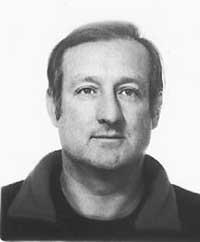Thomas S. Kuhn has died to us
That young graduate who decades ago passed from theoretical physics to the philosophy of science has died. However, this pain cannot hide the exciting issues he taught at Harvard, Berkeley and Princeton Universities. Much less his books on science and nature in his direct style. All the people who study and deal with the contemporary sciences, the actions imposed on nature and the ways of thinking are indebted to Kuhn.
Kuhn's most important work is the so-called 'Structure of scientific revolutions', translated by Elhuyar years ago into a good Basque language. In this work Kuhn describes the genesis, evolution, change and death of scientific theories. Until the arrival of Master Kuhn, we thought that the evolution of science was a continuous path to truthfulness. Any scientific theory preserved forever a part of the veracity of the cosmos and, from that point of view, science began to replace the behavior that formerly fulfilled religion. Kuhn, for the first time in the experts, told us that this absolute vision was not adequate.

According to Kuhn, daily scientific practice (called conventional science) develops within a paradigm. The paradigm is the basic general conception that scientists have of the world in a historical epoch. These paradigms cannot be denied, of what we would stay out of science (become a herexe from the scientific point of view). However, with the passage of time there is also an evolution within conventional science, which causes new problems.
Conventional science cannot solve these problems and then the crisis of the paradigm arises. This crisis requires a scientific revolution. The scientific revolution will change paradigm and the elements that were once considered metaphysical will now be accepted within the new orthodox science (the new conventional science). Therefore, if we consider that the new paradigm is true, what previously existed must be considered false (although for many years it has been useful).
The process of implementing a paradigm (denying the old) is carried out through scientific organizations and the struggle, on which the 'scientific reasons' underlie, which on many occasions will not have much contact with the structure of logic. In Kuhn's view, the struggles to impose theories often resemble those that exist to achieve political power rather than the achievement of rationality.
These breaks (revolutions) around science suggest that continuous (cumulative) science is not a continuous science and, although it seems hard, science does not approach the point where it was situated, not even abstract veracity. Science will ultimately be a system of rationalization of existence, closer to sociology than logic.
Today, in a planet in social crisis, in which science is on an effective front, this collective and institutional re-reading of science is really stimulating, especially for those of us who believe that there are more appropriate paths than the logic of rationalizing relationships between individuals, society and nature. Thank you T. S. Kuhn, for all that.





